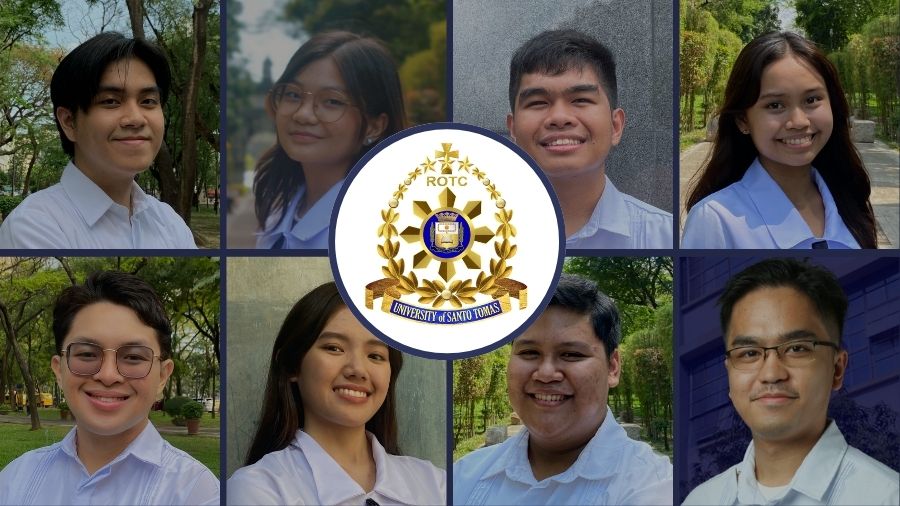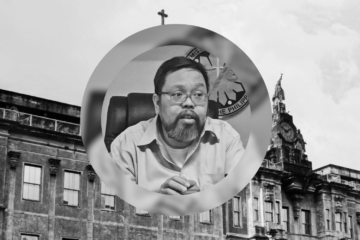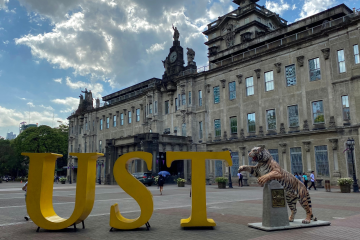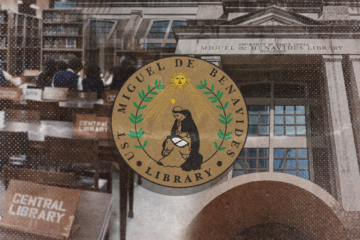
ALL EIGHT candidates of this year’s Arts and Letters Student Council (ABSC) elections are against the revival of the mandatory Reserve Officers’ Training Corps (ROTC) program, saying it might reinforce “corrupt” and “exploitative” practices.
DEKADA’s candidate for president Timothy John Santiago said UST was once the site of the atrocities of the ROTC system.
Mark Chua, a Thomasian cadet, was killed after exposing the corruption in his unit in 2001. His death led to a series of protests that paved the way to the abolition of the mandatory ROTC program.
Santiago believes that the mandatory ROTC puts restrictions on the academic freedom and rights of a student.
“The imposition of such would violate the very purpose of education — to foster critical thinking, knowledge, and social responsibility. Instead, it imposes a skewed view of nationalism and patriotism, ultimately suppressing students’ intellectual and moral development,” he told The Flame.
“It reinforces the idea that ‘might makes right,’ and that violence is the answer to all problems. A mindset like this is harmful to the development of a just and equitable society that values dialogue, cooperation, and empathy,” he added.
DEKADA’s candidate for internal vice president (VP) and legal management student Josh Moncayo argued that there are other ways to promote nationalism without the mandatory ROTC. He claimed that “militarization” only fosters “authoritarianism.”
“True nationalism is the love for your country. And love for our country starts by caring about our fellow Filipinos such as our farmers, the poor, the oppressed, our indigenous peoples, and the like,” he said.
Student-activist and independent internal VP candidate Justine Ello also assailed the mandatory ROT, citing an experience that allowed her to witness what she described as “blind obedience” within the system.
“As a former CAT (Citizen’s Advancement Training) officer, we were taught to obey first before we complain and that our superiors are always right. There is no democracy in CAT as well as ROTC,” said Ello.
She said mandatory ROTC is only an “attack towards academic freedom” and that individuals with power in the program are “corrupt and abusive.”
DEKADA’s candidate for external VP John Matthew Enriquez pointed out that not everyone is physically fit to undergo ROTC.
“It [ROTC] actually withstands its aim to instill nationalism, rather it just jeopardizes our democracy and freedom to choose,” he added.
DEKADA’s candidate for secretary and communication freshman Hannah Calara claimed that the mandatory ROTC is “ineffective” in instilling nationalism in the youth and may even endanger democracy and security.
“We should look into the needs of our community and listen to the people, instead of forcing them to ineffectual military training,” she said.
For journalism sophomore and public relations Officer candidate Rachel Mirasol of DEKADA, the program is a “military infiltration” that prevents students from realizing that schools are zones of peace and academic freedom.
“This kind of military infiltration will hamper the students’ capability to fully realize that schools are supposed to be zones of peace and academic freedom,” said Mirasol.
Asian studies sophomore and independent candidate for secretary Gabriel Emmanuel Gabrillo believes students should be allowed to decide whether to participate in the program.
“[M]andatory ROTC is being used to (red-bait) and suppress progressive sentiments within the students. In our push for [a]cademic [f]reedom as well as the [f]reedom of [e]xpression, we must reject the mandatory implementation of ROTC within educational institutions,” he said.
In 2001, then president Gloria Macapagal-Arroyo signed Republic Act 9163, or the National Service Training Porgram Act, which made the ROTC program optional.
President Ferdinand Marcos Jr. has included a measure seeking to revive the mandatory ROTC in the list of his priority bills. F – Gabriel Oliveros, Shayne Lee Macaraeg and Karen Renee Nogoy



